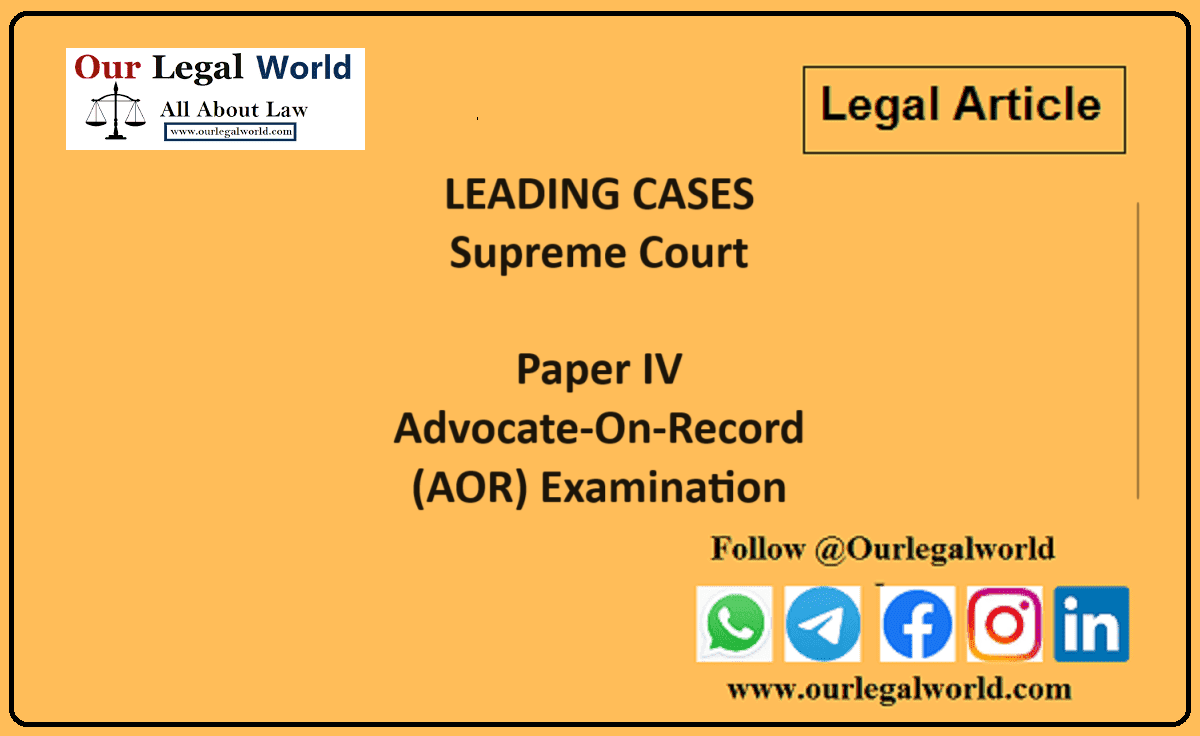SUCCESSION UNDER MUSLIM LAW
In the law distinction between the joint family property and the separate property never existed. Since under Muslim law all properties devolve by the succession, the right of heir-apparent does not come into existence till death of the ancestor, and then alone the property vests in the heirs.
Customary Principle of Succession
The four principles of the pre-islamic law of succession were:
1. The nearest male agnate succeeded to the total exclusion of remoter agnates. Eg, if a Muslim died leaving behind a son a son of a predeceased son, then the son inherited the property and the grandson totally excluded.
2. Females were excluded from inheritance: so were cognates.
3. The descendants were preferred over ascendants, and ascendants over collaterals. Eg, in the presence of a son father could not succeed. Similarly in the presence of father, brother could not inherit.
4. Where there were more than one agnates of equal degree, all of them inherited the property and shared it equally.
Also Read: ESSENTIAL CONDITIONS OF VALID MARRIAGE
Islamic Principle of Succession
The Prophet interposed the following new Principles on theafore said principle of customary law of succession:
(i) The husband or wife was made heir
(ii) Female and cognates were competent to inherit
(iii) Parents and ascendants were given the rights to inherit even when male descendants and
(iv) The newly created heirs are given specific shares
(v) The newly created heirs inherit the specified share along with customary heirs and not to their exclusion.
It is necessary to notice that Koran did not create new structure of law of succession but just amended and modified customary law of succession as to bring it in conformity with the Islamic philosophy.
Those heirs who were not included earlier now included and given specified share.
Koranic principles of customary law of inheritance has led to divergence of opinions among the Shias and sunnis.
Sunnis or Hanafis have developed or altered the pre-Islamic custom in specific manner mentioned in the Korean.
Shias on the other hans have raised up a completely altered set of principles in-builting both principle of pre-Islamic customs and principles expressed in Koran.
Doctrine of Representation
·Under Hindu law the doctrine of representative determines the quantum of share of an heir or group of heirs.
·The per stirpes rule meansthat where there are branches; division of property takes place according to the each branch and then the braches bifurcate the share according to per capita rule. Hanafi law or sunni law does not recognize the doctrine of representation.
·Shia law also does not recognize this doctrine. But it recognize this doctrine for a second purpose i.e. for determining quantum of shares in certain cases.
Sunni law
·Sunnis interpreted the principle of customary laws and principle of Koran in such a manner to blend them harmoniously.
·The customary heir were not depraved of their right of inheritance in the estate of the deceased as only a portion of the estate was given to the heirs enumerated in the Koran.
·The basic structure of the customary succession that is the rule of agnatic preference was retained.
·The Koranic succession takes the agnatic principles further by recognizing the right of female agnates.
·The rule was that male agnate take twice a share of the female agnate.
·The most of the newly created heirs are the near blood relations of the deceased who were ignored in the customary law.
·The Koranic imposition of new heirs does not deprive the male agnates of their inheritance, but their rights are liable to be affected if there exists a koranic heir.
·Under the Hanif law the general rule of distribution of estate is pre capita and per stipes.
Categories of Heirs
Under the sunni law the heirs of the deceased Muslimmale or female falls the same category i.e.
1.The sharers
2.The reliquaries
3.The distant kindred
4.The state by escheat
Distribution of Assets among and Residuries
·Among the heirs, the sharers are to be given first share first.
·The residue is then is to be distributed among the residuaries.
·In the absence of Sharers the residuaries take the entire estate.
·In the absence of both the estate will go to the distant kindred.
·Further, in absence of all of them estate goes to the state.
·The general rule of preference in that nearer heir excludes the remote one.
·In sunni inheritance law there are five heirs who are always entitled to a share they are husband, wife, child, father and mother. They are called primary heirs.
Distribution of Assets among Distant Kindred
·When among the claimants there are descendants, ascendants and collaterals then descendant’s distant kindred are preferred over ascendants and collateral.
·When only descendants are claimants then one having fewer degrees of descent will be preferred.
Shia law
Classification of Heirs under Shia Law
- Heirs by marriage
- Heir by consanguinity
- State by escheat
Categories of Heirs
- The Sharers and descendants of Sharers how low so ever.
- The Residuaries and the descendants of Residuaries how so ever.
Disqualification
·Non-Muslim
·Murderer
·Illegitimate children
·Daughters
·Childless window
·Step parent







![Tax Law Internship at Legum Attorney [Chamber of Ashish Panday], Delhi : Apply by 15th May 2025](https://www.ourlegalworld.com/wp-content/uploads/2025/05/IMG_0113-min.png)

